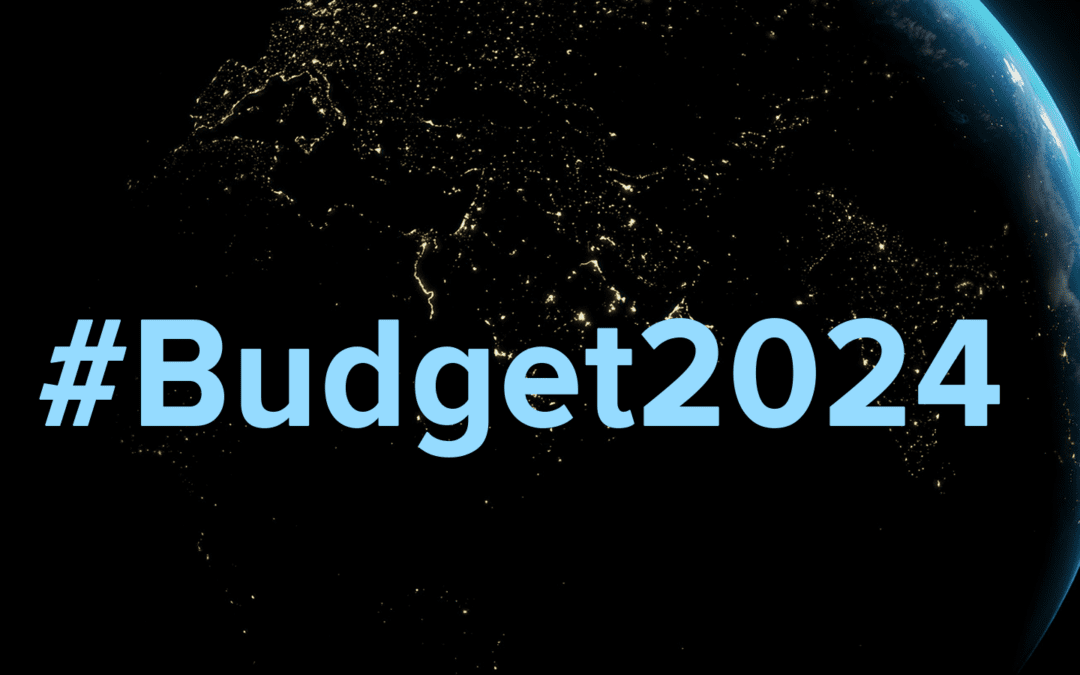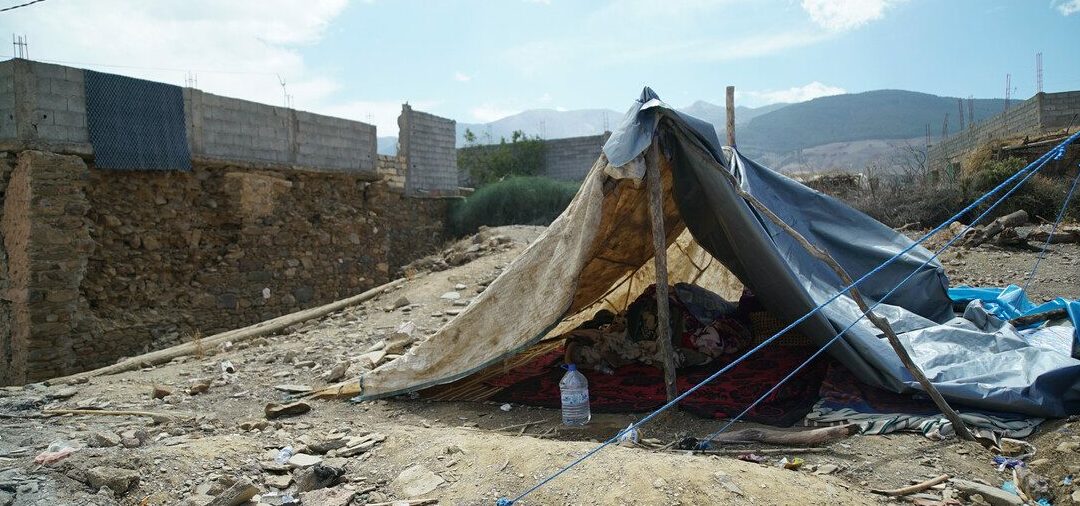It is the holy month of Ramadan for 1.6 billion Muslims across the world. Ramadan is a time of fasting, sharing, praying and reflection. People gather with their families to break the fast at the end of the day and decorate their homes and streets with lights. For people in Gaza, this Ramadan is the hardest one they have ever had to live through. There are 2.3 million people on the brink of famine, and 80 per cent of them have had to flee multiple times to seek safety from the constant bombings. More than 60 per cent have nothing but piles of rubble to call their homes, and over 100,000 people have been killed or severely injured. CARE asked people who have been displaced and are living in tents in Rafah what Ramadan means to them, how this holy month is different from previous ones, and what their biggest wish is for this special time.
All names have been changed for protection. Credit for all photos: Yousef Ruzzi/CARE


“I am afraid Ramadan will bring more bloodshed. I am afraid this war will never end.”
Lara is a mother of six and prays for the children who are starving and those who have lost their parents.
“Before the 7th of October, we lived a peaceful life. Our life now is filled with fear, horror, hardship, and discomfort. Since October, we have lived in different shelters and locations. Here in Rafah, we live in a tent. I spend my days walking many kilometres to fill up some water bottles for my children. Every day I fear that I will not be able to feed my little ones. The prices for everything are very high, and a lot of the nutritious foods children need are not available. The month of Ramadan is very special to me. It is a month of serenity and worshipping, a time of joy. The war has changed everything. I am afraid of Ramadan; I am afraid of the predicted ground invasion. I am afraid this war will never go away, that we will always have to live in these horrific circumstances. Usually, during Ramadan, we decorate our house. We get out our nice glasses and plates and clean our house. Now, we don’t have a house to clean anymore. We live in a tent, our home is destroyed, families cannot fully gather anymore, because many of their members are dead. All I can think of is the people we have lost. I think of the children in the Northern part of Gaza who are so hungry they die of starvation. My biggest wish is that things will change for the better and that people feel safe again. We need an end to this war. Enough is enough, we cannot bare any more losses in our lives, we cannot see more death surrounding us. More than anything I pray for the children who are hungry, for the children who have lost their mothers and fathers, and those who don’t know yet if their parents are alive or dead.”


“I want my children to feel safe and happy during this Ramadan.”
Faisal lives with his wife, two sons and two daughters.
“The past five months we have been living in fear and horror. Where we live, in Rafah, is considered the safest place in the Gaza Strip. But it is not safe. Nowhere in Gaza is safe. There is bombing and shelling all the time. I cannot work anymore and provide for my family. The prices even for the most basic things are very high. Our life used to be normal, simple. We had enough to eat and we enjoyed our time as a family. Now everything has changed. We cannot go back to our house, even if I would really like to check if it is still there and take a few things that are important to us. But if I would go to our house in Khan Younis, I would probably never come back. My children are still very small. They are always scared when I am not around so I try to never move from their sides. During Ramadan, I fast, pray and worship God. Normally during Ramadan I would buy nice food and clothes for my children. There is nothing that is more important to me then making sure that my children survive this horror. It is hard, because they ask me for certain things like buying them pickles or Katayef (dessert for Ramadan, pancake-like). But the prices are so high; I cannot give them what they want. I would like to go to the mosque and pray, but it is too dangerous. My biggest hope is that everyone can go back to their homes, live a life in dignity, and that we can eat fresh and healthy food again. I also hope I can make my children enjoy this Ramadan somehow, so that in their memory it won’t be much different than other Ramadan in previous years. I want them to be okay and safe.”


“I feel dead inside. All I want is to live in peace.”
Ali wishes that everyone can return to their homes. He wishes he didn’t have to be constantly surrounded by loss and death.
“I am 65 years old, but I feel like I am dead already. We have been displaced three times and now live in a tent in Rafah. Every evening when we go to bed, we wonder whether this night might be a peaceful one. Every morning, we wake up we wonder if we are still alive. We are not doing well, psychologically or physically. Everything is hard. The month of Ramadan is usually filled with generosity, compassion, family, and prayers. During the day we work, we pray, we go to the mosque, and at night we enjoy the breaking of the fast, the Iftar, with our friends and family. Ramadan is all about our homes and our family. But so many of us have lost someone dear, and most do not have a home to return to. Living in a tent is difficult. There are strangers around us, everything is crowded, and we must collect and carry water from far away every day. Everything you need for a good life is missing here. There is no peace of mind, no relief. We are constantly waiting for even worse things to happen. Loss and death are all around us. Every day we hear about family members and close friends who have died. In each tent there are people who are injured and in pain. From where shall we find some peace of mind to live our lives normally? My biggest wish for this Ramadan is that we can return to our houses, even if they are destroyed. I want everyone to be able to live in peace.”


“I got married just before the war started. Now all my dreams have been destroyed.”
Fairouz wishes she could hear her sisters’ laughter again and feel safe.
“Just before the war started, my husband and I got married. Everything in my life seemed full of potential. We moved to a new house, and my husband and I planned to build a family. I had so many dreams. Suddenly, all of this was taken away. My dreams have vanished. We now live in a tent, and everything has changed. I was so looking forward to my first Ramadan with my husband, to prepare food for everyone and bring people together. Now all we do is fast, and that is it. Other than that, it is horrific as any of the other days we spend in our tent in a camp for displaced people. Our situation here is difficult. We are always sick because of the poor hygiene conditions. There is no privacy for me as a woman, especially in the bathrooms. I lost just about everything: my life, my work, my safety, and security. More than anything I want a place where I can feel safe. To gather with my sisters and hear their laughter again. I feel trapped. We were so fortunate; I feel I am only realizing how lucky I was now with all I have lost.
I wish I could go back to the life we used to live: to my work, to gathering with our family and friends, to our homes. I want to feel safe again.”
CARE West Bank and Gaza is working alongside local partners and has been among the few humanitarian organizations that have secured supplies from within the region. The needs are high and it is essential that aid is allowed to pass safely into Gaza. Learn more.




